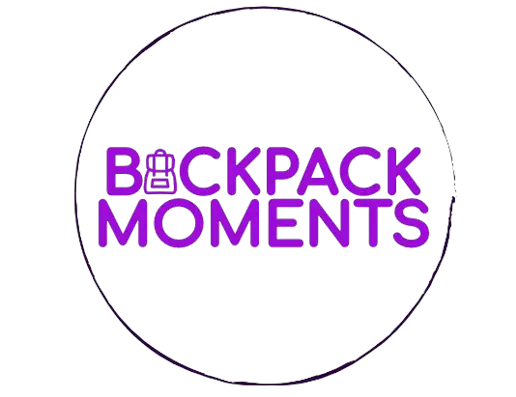“No, Mr Peshmerga, I’m not a Turkish Spy!”

Let me begin by saying that Iraqi Kurdistan is generally safe. One reason is that the autonomous region in northeastern Iraq has its own militia called “peshmerga“, literally meaning “those facing death“.
No friends, but the mountains.
Kurdish people
Security in Kurdistan
The Kurdish have been through a lot in the past century. They are the largest ethnic group without a nation state – there are around 40 million Kurds spread mostly between Iraq, Turkey, Iran and Syria. Each of those countries has its own “Kurdish region”, but they face differing degrees of discrimination everywhere.
That’s why the Kurds are inherently suspicious of anyone not a Kurd. I’m not saying they’re not friendly or hospitable – to the countrary, I’ve met the nicest people in Kurdistan. It’s just that protecting their land has always been a difficult task, so they put in the utmost effort.

Understandably, there are many military checkpoints on the roads of Kurdistan. Every 30 or so kilometers there’s a roadblock with some peshmergas stopping and checking travellers’ IDs. Most of the time they quickly glance over my passport and let me go on. They’re more interested in cars with mainland Iraqi or Turkish registration. Two times they made me get off the vehicle and then promptly returned my passport – I don’t quite understood why as they didn’t even ask any questions.
The 1% of checkpoint stops
I was travelling in a shared taxi from Ranya to Soran – two smaller cities in Iraqi Kurdistan. That probably raised my suspicion level, although the first checkpoint was pretty straightforward – a quick glance of my visa and off we go.
At the second checkpoint I was asked to leave the vehicle. The peshmerga took a quick look at me and asked me to follow him inside the shack where the rest of his colleagues (comrades? mates?) were having lunch. I was immediately offered some beans, which at first I refused, but then accepted as they would insist.
Then the questioning started. They spoke zero English. Not a single word. The senior peshmerga kept asking me questions in Kurdish and I just kept telling him I don’t understand. He saw the Turkish border stamps in my passport and switched to Turkish. I don’t know Turkish either, but I know just enough phrases to understand that it’s Turkish.
“Turkce billiyorum?” / “Do you speak Turkish?“
“Turkce bilmiyorum” / “I don’t speak Turkish” I replied.
Maybe using the Turkish phrase was a mistake, because he got quite agitated and started speaking more and more Turkish to me. I kept tickets from the museums I had visited in Turkey next to my passport and I believe, contrary to what you might expect, that was even more suspicious to him. At one point I thought to myself:
“Mr Peshmerga, I’m not a Turkish spy!”
One of the other peshmergas asked me to bring my luggage from the car. He came with me outside. At first I didn’t understand him and just showed him my luggage and closed the trunk again, but then he made me actually take my backpack with me inside.
Then he started rummaging through it. He took out all my dirty laundry, chargers, medicine, my laptop, all the way down to the winter jacket packed at the bottom of the backpack. It was actually a very funny sight – I’m sitting there eating beans, one peshmerga is browsing through my t-shirts, the other is trying to turn on my laptop. It’s quite a pity I don’t have any photos of the situation. Which is quite understandable, given the circumstances.
The senior asked me to show him the files I had on the laptop. It was a pretty new laptop, almost no files on it. I opened the drive, he picked the movies folder. I had downloaded the last season of Westworld and he promptly started watching. It’s not propaganda materials, dude.
The other picked my medicine bag up. That’s when I realized they had never seen:
- Active carbon
- Paracetamol
- Condoms
Explaining what the first two were with mimes was quite simple – point to my tummy/head and indicate it hurts. Explaining the third one… well, let’s just say I think I commited a cultural faux pas.
In the meanwhile I tried to contact my Couchsurfing host from Qaladitza, a small village near Ranya, but there was no coverage in the area of the checkpoint. Ten minutes of thorough searching went by and as I was finishing my beans, the senior peshmerga received a call. DIfferent provider maybe, I don’t know. He handed me the phone and it was his senior who spoke pretty good English.
“Hello! Which border did you come through? Do you have a valid visa?” he asked.
“I came from Turkey, I crossed at Ibrahim Khalil. I already showed my visa to your colleagues,” I promptly responded.
“Welcome to Kurdistan!“
Phew! They immediately dropped all my things and I started packing as quickly as possible. I thanked them for the meal and hurried to the shared taxi. The others had been waiting for me for almost an hour. Let me just say that the driver was quite grumpy with me for the rest of the drive to Soran…
Understandably, I don’t have any pictures of the incident, but here’s a picture of Rawanduz valley, just 5 km from Soran – the reason I made the journey in the first place.

If you want to learn everything about travelling to Iraqi Kurdistan, click here.
If you want to see how much 12 days in Iraqi Kurdistan cost me, click here.
If you want to read more moments from Iraqi Kurdistan, click here.
